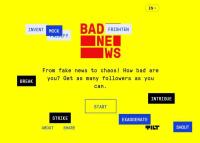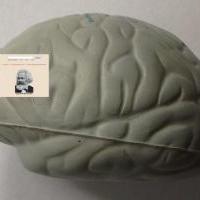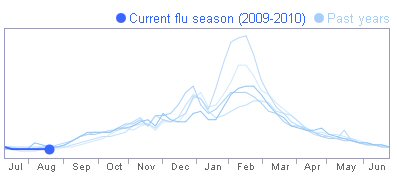You are only seeing posts authors requested be public.
Register and Login to participate in discussions with colleagues.
Clinical research
Psychological inoculation against misinformation and polarization of discussions
Public
 An intriguing bit of research and an online game. Developing an approach to expose people in advance to methods of misinformation before they encounter it. How might this apply generally, not just to "fringe" elements that may be labelled as "fake news", but also to mainstream news or even published articles that may use the same techniques? For example, in the documentary "Waiting To Die - Canada's Health Care Crisis" mention is made of the polarization of public discussions on the introduction of hybrid public and private health care in Canada? This is an example of the "false dichotomy argument" where it is framed as either Canada's universal health care or the US style private care, while totally ignoring that 28 other developed nations have hybrid systems. What can we learn from the research?
An intriguing bit of research and an online game. Developing an approach to expose people in advance to methods of misinformation before they encounter it. How might this apply generally, not just to "fringe" elements that may be labelled as "fake news", but also to mainstream news or even published articles that may use the same techniques? For example, in the documentary "Waiting To Die - Canada's Health Care Crisis" mention is made of the polarization of public discussions on the introduction of hybrid public and private health care in Canada? This is an example of the "false dichotomy argument" where it is framed as either Canada's universal health care or the US style private care, while totally ignoring that 28 other developed nations have hybrid systems. What can we learn from the research?
"Cracked Science" light-hearted in-depth science for everyone
Public
 The youtube channel "Cracked Science" with Jonathan Jerry provides some good humour and scientific knowledge in ten minute episodes to bring you up to speed and get you thinking.
The youtube channel "Cracked Science" with Jonathan Jerry provides some good humour and scientific knowledge in ten minute episodes to bring you up to speed and get you thinking.
Take a look at CRISPR is a Puppy and learn how gene therapy may be applied to human diseases.
Another episode helps to debunk the media hype on the discovery of a new human organ - "the Interstitium, the largest organ we never knew we had", Does a New Organ Explain Acupuncture? While some of this is opinionated to the reporter's own views on acupuncture, the evidence of the Interstitium is a good reminder of what we already know.
Does the brain get rewired by surfing the net?
Public
 There is a fascinating article on Wired.com (http://feeds.wired.com/~r/wired/techbiz/~3/l5_LN8_yizo/) that describes some research studies done in 2007 on brain activity by Dr Gary Small, a UCLA professor of psychiatry and author (http://www.drgarysmall.com/).
There is a fascinating article on Wired.com (http://feeds.wired.com/~r/wired/techbiz/~3/l5_LN8_yizo/) that describes some research studies done in 2007 on brain activity by Dr Gary Small, a UCLA professor of psychiatry and author (http://www.drgarysmall.com/).
MRI scans of brain activity were done while subjects wore goggles that displayed web pages and used a handheld keypad to search the Internet.
The MRI scanned their brains for areas of high activation indicated by increases in blood flow.
Internet search activity as measures of human health trends
Public
 With millions of searches done on the Internet every day it is no surprise that search engine giants like Google are exploring many applications of the search activity data.
With millions of searches done on the Internet every day it is no surprise that search engine giants like Google are exploring many applications of the search activity data.
One interesting application of Internet search activity data is Google Flu Trends that while providing graphs of results from New Zealand, Australia and the United States, says of itself:
Preserving cocoa flavanols during cooking and baking
Public
Here's an interesting research article on cooking with cocoa and the impact on retaining the antioxidant activity and cocoa flavanols in the food.




